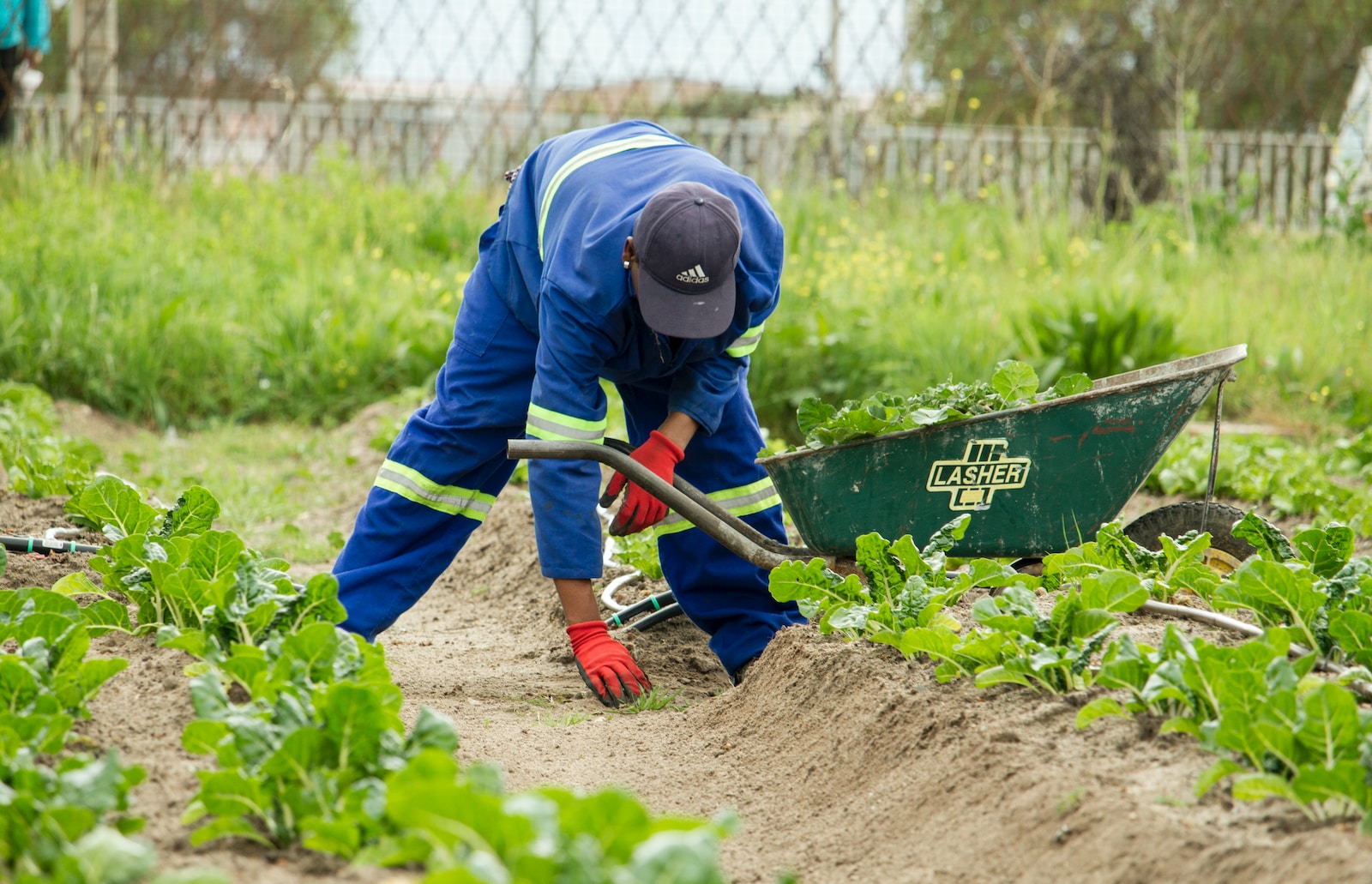The Great Debate: Organic vs Conventional Farming
When it comes to the food we consume and the earth we inhabit, there rages an enduring tempest of a debate– organic versus conventional farming. It is a veritable clash of ideologies, putting nature’s wisdom against human technological prowess.
An epic saga where tradition wrestles with novelty, quality grapples with quantity, and sustainability scuffles with immediate gains. We’ve seen this clash escalate in recent years into a full-blown war of words and worldviews.
It’s no longer about just feeding our bellies; it tugs at our ethics, rattles our economics, and rasps at our understanding of the intricate web of life itself. Those who advocate for organic farming tout its natural ways as a healing balm for Mother Earth while champions of conventional methods hail them as humanity’s bold trek towards feeding an ever-growing population.
The Roots of The Issue: Understanding the Basics
Before plunging headlong into this discussion, it behooves us to first understand what these two combatants in agricultural arena actually represent. Organic farming is rooted in age-old wisdom, harnessing natural ecological processes whilst renouncing synthetic inputs such as fertilizers and pesticides.
It seeks to foster biodiversity, enrich soils and conserve water; all within an intricate dance with nature guided by stringent regulations that respect planetary boundaries. Conventional farming on the other hand is the poster child for industrial revolution greens.
Its mission? Food production en masse through any means necessary!
Armed with heavy machinery, genetically modified seeds (GMOs), chemical warfare via pesticides and synthetic fertilizers; this beast runs on efficiency over ecology. Make no mistake though – each approach has its own set of unique challenges and benefits that command careful consideration before picking sides in this grueling gastronomical skirmish.
The Fertile Grounds of Organic Farming
Nature’s Stewards: Principles and Practices of Organic Farming
Organic farming, my friends, is the lavender-scented antithesis to the stench-ridden cesspool that is conventional agriculture. It is a return to nature’s wisdom, treasuring the soil and the endless cycle of life it nourishes. This glorious field attends not only to crops but also to the intricate web of life that surrounds them.
It understands that we are interconnected, a fact obstinately denied by those who drench our fields in toxic chemicals. The principles?
Simple yet profound. Avoidance of synthetic inputs like pesticides and synthetic fertilizers because guess what?
Nature knows best! We’re just vainly throwing around chemical cocktails hoping for an easy fix while ignoring all side effects!
Crop rotation and cover cropping are also integral practices. They counteract pests naturally and foster soil fertility – a concept seemingly as alien to conventional farming as extraterrestrial life.
Reaping What You Sow: Benefits of Organic Farming
Health Harvest: Nutritional Advantages
And let’s talk about nutrition! The nutritional advantages organic farming provides is irrefutable proof that nature’s wisdom trumps man-made intervention any day. Consuming organic food isn’t just some frivolous trend; it’s an investment in health — your health!
Multiple studies have shown organic foods often contain higher levels of essential nutrients compared to their pesticide-soaked counterparts. And why wouldn’t they?
Healthy soil equals healthy plants equals healthy people! But apparently this equation is too complex for industrial farmers to comprehend!
Earth’s Allies: Environmental Impact
Moving on, considering environmental impact seems almost superfluous in any sane discussion about farming methods because it should be obvious! We do not inherit this Earth from our ancestors; we borrow it from our children!
Nonetheless, let me spell it out clearly – organic methods are far friendlier to Mother Earth than conventional ones! No synthetic fertilizers poisoning the land and waterways or fueling dead zones in oceans.
No hazardous pesticides wiping out beneficial insects or disrupting ecosystems with their wanton collateral damage. Yes, folks – organics are indeed environment’s true ally!
Sustaining the Cycle: Economic and Social Benefits
Last but not least on this impeccably potent list are economic benefits – an area often overlooked by naysayers who cling desperately onto their pesticide bottles like babies with pacifiers. Evidence supports that organic farms tend to be more profitable than conventional ones due to higher crop prices driven by growing public awareness about food safety issues. Beyond mere profits though, organics nurture local communities by promoting fair wages for laborers thus fostering social sustainability alongside its environmental counterpart – intertwining branches that create a robust tree against harsh winds of industrial exploitation.
Conventional Farming: The Industrial Green Revolution
The Omnivorous Machine: Feeding the Masses
Conventional farming, an offspring of the industrial revolution, is like an insatiable, omnivorous machine that devours everything in its path to feed the ever-growing population. It’s a mechanized behemoth, relying heavily on machinery and technology.
The principles? More, faster, cheaper.
It’s all about mass production and economies of scale; tilling vast expanses of land and bathing them in a cocktail of synthetic fertilizers and pesticides to pump out uniform crops. The tantalizing allure of high yields seduces many farmers into this industrial dance.
This practice emphasizes uniformity and standardization; fields are transformed into monotonous landscapes dominated by single crop species – a far cry from nature’s eclectic orchestra of biodiversity.
Yield over Field? An Unfair Tradeoff
Yes, conventional farming has been incredibly successful in terms of sheer output; it’s indisputable that it has contributed significantly towards feeding the world’s burgeoning population. However, let us not fall prey to myopic views! When one delves deeper beneath this ostensibly successful narrative, we find it fraught with perilous implications for our environment and future generations. The obsession with yield has led to an overreliance on synthetic inputs — fertilizers and pesticides — heedlessly dumped into our soils in alarming quantities. This reckless practice does not only deplete our soils but also poses serious threats to water bodies through runoff – robbing Peter (our environment) to pay Paul (our insatiable appetite)!
Quantity’s Reign: Production Efficiency vs Environmental Efficiency
The mantra of conventional farming seems simple enough: maximize production efficiency at all costs! However, what we have failed to realize is that this model can’t continue perpetually without severe environmental repercussions.
Our planet is not an inexhaustible resource; its bounty is finite. The energy equation in conventional farming speaks volumes about its inefficiency from an ecological perspective.
For example consider this – how much fossil fuel energy do you suppose goes into growing a calorie’s worth of food conventionally? We’re talking about scores more than what mother nature requires!
Economic Gains or Environmental Pains?
No doubt conventional farming dominates the market with its relatively cheap food products – benefiting consumers’ pockets but at what cost? Its hidden impact casts long shadows over environmental sustainability as well as human health – a price too steep for us all. In truth, these ‘affordable’ foods carry invisible costs borne by our environment – degrading soil quality with excessive chemical application damaging biodiversity with monocropping practices or polluting water resources through chemical runoff laced with pesticides & fertilizers… And guess who gets left holding the bill?
Captivating Consumers or Capturing Market?
Beyond sizeable yields and affordable prices for consumers lies another dubious aspect of conventional farming—its market dominance chokes smaller organic producers fighting for shelf space in grocery stores across nations… This dominance reduces choices available for conscientious consumers willing to pay more for healthier organic options while also stifling growth opportunities for organic farmers determinedly choosing ethical environmental practices over quick profits… .
Sprouting Differences – Crop Cultivation & Soil Management.
Why, oh why, do we ignore the exquisite poetry of farming? The graceful ballet of organic cultivation versus the harsh staccato of conventional methods.
Organically nurtured soil is teeming with life! Enzymes, bacteria, earthworms all work in harmonious symphony to create a fertile bed for crops.
It’s a romantic dance that mankind has had with nature since time immemorial. In stark contrast stands the conventional approach which, I dare say, bullies its way through nature.
It forces crops into sterile soil that owes its fertility to artificially manufactured chemicals! This is akin to running marathons on nutrition bars when you have a sumptuous home-cooked meal waiting at home.
Pesticide Paradox – Chemical Use in Both Methods.
Now let’s talk about pesticides. Pesticides are like those overbearing relatives — they mean well but leave havoc behind them. Organic farming employs natural methods like biological pest control and crop rotation.
Yes, it can be labor-intensive and yields are slower but isn’t it worth the wait? Conventional farming’s flagrant use of synthetic pesticides seems justifiable because we get high yields quickly but at what cost?
Our health? Our environment?
The irony is not lost on me that we are using harmful chemicals to grow our food! Doesn’t it seem like shooting ourselves in the foot?
Harvest Hurdles – Yield, Quality, and Sustainability.
Let’s talk about yield for a moment. Conventional farming may win this round due to genetically modified seeds and an aggressive use of fertilizers but does quantity trump quality now?
Is this what we’ve come down to as a society? The sustainability argument for organic farming cannot be negated either.
Let’s not forget our responsibility towards this planet that feeds us! Conventional farming has turned large swathes of fertile land into wasteland with its unrelenting use of chemicals.
Surely organic food tastes better; anybody can discern between produce grown organically and those grown conventionally if they truly pay attention to their palates instead of their wallets! Ultimately, it comes down to whether we want quick fixes or sustainable solutions; whether we want mindless abundance or thoughtful quality; whether we choose short-term gain or long-term survival.
The Consumer’s Plate – A Battlefield Unseen
Nutrition Nuances – The Illusion of the Nutrient-Rich Harvest?
Let’s be blunt, it’s a fallacy to believe that organically grown foods are always healthier. Yes, you heard it right! Just because something is grown organically doesn’t render it a miraculous health potion.
It’s not like Eutychus arose from the dead after feasting on an organic apple! Indeed, several studies concur with this assertion.
A comprehensive study by Stanford University found minimal differences in nutritional value between organic and conventionally grown produce. Yet, proponents of organic farming conveniently turn a blind eye toward such data.
They tout higher nutrient values but fail to accept that these differences are often negligible or inconsistent at best—hardly worth paying the hefty price premium for organic labels. Moreover, healthy eating isn’t merely about gargantuan piles of vitamins and minerals; it’s more about balanced and diverse diets rich in fruits and vegetables, whether conventional or organic.
Fatal Traces – A Cocktail of Chemicals?
On the other hand, when we shift our gaze from health benefits to potential harms, the playing field tilts noticeably towards organics. Conventional farming is like a notorious mafia boss who leaves his mark wherever he goes—in this case, residual pesticides on your dinner plate. According to the Environmental Protection Agency (EPA), 60% of herbicides, 90% of fungicides and 30% insecticides can be carcinogenic—our love affair with conventional food might just be our slow poison!
The pesticide rhetoric peddled by Big Ag explores new boundaries of audacity—they claim that their toxic soups are necessary to feed the world whilst downplaying their disastrous side effects. Ironically enough though, studies have shown pesticide residues on conventional produce exceed acceptable levels frequently enough to raise concerns about chronic exposure risks through dietary intake alone—something every avocado-toast-loving millennial should seriously chew on!
Economic Impacts – From Field to Market
The economic dynamics of organic and conventional farming are as diverse as the crops they yield. Both agricultural methods have their unique financial implications, yet, it’s the consumer who often bears the brunt of these fiscal disparities.
Oddly enough, it seems that society has evolved into a peculiar paradigm where artificiality is cheaper than authenticity. A distorted market reality that often leaves one mulling over: Is this an economic oddity or a deliberate ploy designed by industrial agriculture moguls?
Pricey Produce? Cost Comparison Between Organic and Conventional Foods
Have you ever wondered why organically grown tomatoes cost more than their conventionally grown counterparts? It’s almost as if consumers are being financially penalised for choosing healthier and eco-friendlier options. The truth is that organic farming involves higher labor costs due to strenuous manual work and lower output per acre because of the lack of synthetic pesticides and fertilizers. However, I can’t help but be irked by this unjust bustling marketplace where consumers pay more for essentially less intervention on nature’s part.
Farmers’ Fortune – Economic Viability for Producers
While we’re on this topic, let’s not forget about our hardworking farmers. Conventionally speaking (pun intended), large-scale farmers may reap more profits due to high yields and subsidies provided by oblivious governments supporting detrimental agricultural practices. But here’s a thought – isn’t it time we reconsidered our definition of economic viability?
An industry that relies heavily on government bailouts, harms fragile ecosystems, and jeopardises public health does not fit my description of a long-term economically viable model. Instead, we must prioritise agriculture that values biodiversity over monocultures, nutritious food over yield volume, and sustainable practices over short-term gains.
The Unrelenting Strains of Conventional Farming
Conventional farming is a scourge on the earth, an unignorable and unforgivable affront to our planet’s wellbeing. Its unrelenting use of synthetic fertilizers, herbicides, and pesticides wreaks havoc on our environment—poisoning our waterways, decimating our biodiversity, and perpetuating a cycle of soil degradation. This toxic practice is like a parasite, sucking the life out of the ground for its short-term gains while leaving it barren for future generations.
The Sustainable Symphony of Organic Farming
Organic farming is an ode to nature’s wisdom—a symphony that resonates with the rhythms of the earth rather than trying to command it. It nurtures soil health, encourages biodiversity, and respects ecological balances.
This isn’t some fanciful dream pulled from a storybook; it’s practicality rooted in respect for natural processes. The mindful management practices employed by organic farmers not only sustain but enhance our environment.
A Choice Between Destruction or Revival
Choosing between conventional farming or organic isn’t about picking sides in some petty squabble—it’s about deciding what kind of future we want to leave behind for generations yet unborn. It’s about choosing between destruction or revival; exploitation or respect; indifference or mindfulness. Yes!
Organic is pricier but remember we either pay now at the store or pay later dealing with health problems caused by pesticide-laden foods and a dying planet. Our food choices are more than just personal—they have global implications.
We can choose to support practices that harm our planet and ourselves or we can choose wisely and invest in a sustainable future through organic farming. So let’s hold on tight to hope—let optimism light up your heart like sunshine after rain because every small choice towards sustainability counts towards an abundant future we can all share in.
 Skip to main content
Skip to main content


